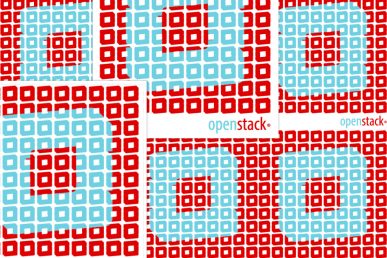In this series of interviews, we’re talking to the new Individual Directors on the 2015 OpenStack Board of Directors. These Directors provide oversight of the Foundation and its budget, strategy and goals. The 24-person Board is composed of eight Individual Directors elected by the Individual Members, eight directors elected by the Gold Members and eight directors appointed by the Platinum Members.
We’re kicking off the series with Egle Sigler, a principal architect with Rackspace private cloud. She shares her thoughts on how to make OpenStack more beginner friendly, the importance of DefCore and debunks some persistent myths about cloud computing.
Superuser: What are the first steps to making OpenStack more accessible to beginners?
Egle Sigler: OpenStack has gotten really big and complex, which is great for satisfying different use cases for super users and enterprise. It would be really nice if there was a subset of OpenStack functionality that users could try before diving head first into all the projects without needing to know which OpenStack project will work and which will not. Hopefully DefCore will help with this issue.
If you had a blank check to boost travel sponsorships, academic/student scholarships, how would you spend it? And minus that blank check, how would you create more of those opportunities?
A blank check would be outstanding and I would use it to bring all OpenStack developers, operators and students to the summit. Since my blank check was taken away so quickly, I think incentivizing companies to send more developers could create more travel opportunities.
Perhaps we could tie these incentives to the sponsorship price? There is already a travel sponsorship program, and an academic discount for summit registration. I would like to see local students have the opportunity to volunteer at a Summit and attend a few talks that way. It would also be nice to see evening or networking events open to the local technical community as well.
What are some more persistent myths about moving to the cloud?
There are many!
The one-size-fits-all cloud myth: cloud is not a single monolithic substance that somehow just works for everyone. Neither is a particular type of cloud the answer to everything. For some companies, going with a public cloud provider is the ultimate cloudy answer, while for the others it could be a security and compliance nightmare.
The need for infinite scalability myth: most people don’t even need a very large cloud. If you have good web application design, it is likely that the [Oprah effect]( http://www.investopedia.com/terms/o/oprah-effect.asp) can be handled by scaling to a dozen large VMs in a public cloud.
Also, the myth that cloud is the answer to bad application design: whether it’s legacy applications or a new technical debt, the cloud will not solve underlying technical issues. Expecting Super Bowl or Oprah-level traffic? Bad application design will be difficult to scale in a datacenter or in the cloud.
What will success look like for OpenStack five years from now?
I hope that in five years from now OpenStack will be an easy-to-use technical stack powered by such a large and vibrant community that we will no longer have two Summits a year, but multiple summits across the world for developers, users, and operators.
What are you looking forward to most at the next Summit?
At this next Summit, I hope to see a lot of sessions for the beginner users and application developers. There are a couple of tracks, “Planning Your OpenStack Project” and “Targeting Apps for OpenStack Clouds” that should be really good for both. I noticed that with each summit there are more and more people attending OpenStack Summits who are new to OpenStack and could really benefit from introductory tracks.
I’m also really glad to see that the #vBrownBag TechTalks are getting bigger with each summit. They provide a great venue for engineers and developers to share their passion in technology. Lastly, it would be great if there were a DefCore trivia game show!
What’s your favorite/most important OpenStack debate?
In my opinion, DefCore is the most important OpenStack debate right now. DefCore sets base requirements by defining capabilities, code and must-pass tests for all OpenStack products.
It uses community resources and involvement to drive interoperability by creating the minimum standards for products labeled "OpenStack." While it may not be the answer to the ultimate question of what is vanilla OpenStack, I hope it will take us closer.
Who is your real-life hero?
My grandmother. She is always very positive and very interested in news, technology, and healthy living. As a student, she was deported to Siberia (part of Soviet [deportation]( http://en.wikipedia.org/wiki/Soviet_deportations_from_Lithuania) of Lithuanians to Siberia) and survived some very harsh living conditions.
She is a couple years shy of 90, yet she still has a sharp and curious mind and runs her own business. She started making pressed flower cards about 30 years ago, and she is still making them every day, meeting with clients, and creating new designs. One of her bigger regrets is that today’s technology did not come around sooner.
- OpenStack Homebrew Club: Meet the sausage cloud - July 31, 2019
- Building a virtuous circle with open infrastructure: Inclusive, global, adaptable - July 30, 2019
- Using Istio’s Mixer for network request caching: What’s next - July 22, 2019

)










